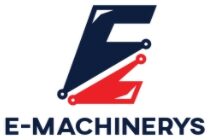It’s not really a surprise, but the owner of PSA’s electric vehicles reminds us: if the battery-powered car will bring its share of advantages, it will also have the disadvantage of causing after-sales revenues to plummet. The fault of the “too great” simplicity of electric motors.
Between an electric motor and a heat engine, there is an important relationship between the number of parts in one and in the other. An electric motor has fewer than 50 parts when a thermal block (without any accessories and external equipment such as the alternator, starter, etc.) has on average more than 250 parts.
So necessarily, the need to go to the workshop for an electric vehicle is much less. For the manager of the development of electric vehicles at PSA, losses in the after-sales are inevitable for the French group, but this is not inevitable. She confirmed to our colleagues at Autocar that in the long term, customers will return to the brands’ workshops for various repairs and maintenance operations.
And this is simply explained: independent networks are not as well trained as brand concessions on high-tech products such as electric vehicles. Clearly, on very specific problems, customers will have no choice but to go into the concession of their brand.
According to Helen Lees, the current leasing plan for the Peugeot e-208 provides for maintenance that is one third less expensive than that of an equivalent to a petrol engine on the 208. Clearly, PSA (like any other manufacturer, in the end) will necessarily lose money if electricity enters the market strongly.
